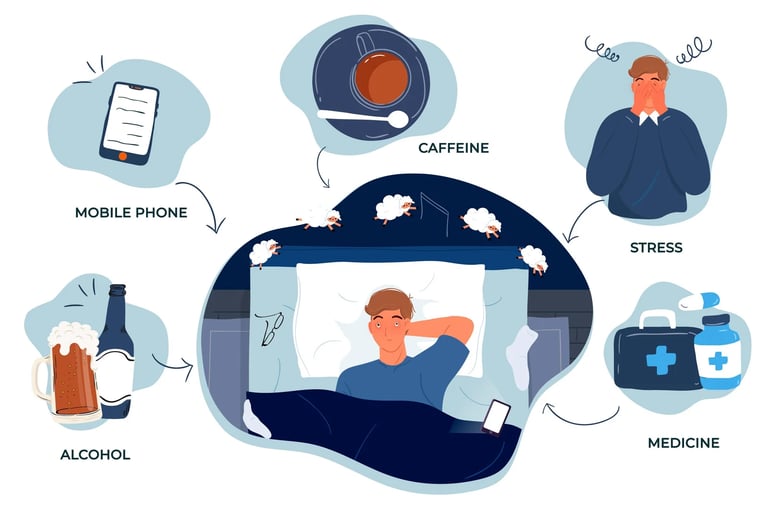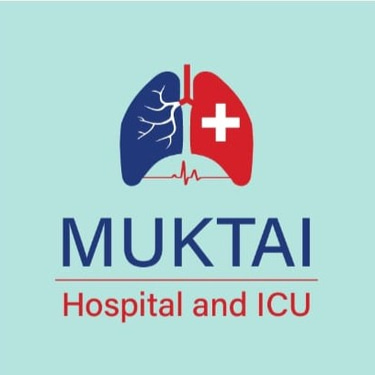Address: 4th Floor,Aishwaryam Deer stone Building, Sector No.27, Pradhikaran, Akurdi, PCMC. Emergency Care 24/7


Sleep Disorder/Snoring/OSA


Adult Obstructive Sleep Apnea
Obstructive sleep apnea (OSA) is a common condition that interferes with breathing when a person is asleep. A person with OSA experiences periods during sleep when air cannot enter the lungs regularly. The collapse of the soft tissues in the back of the throat (upper airway) and tongue during sleep is typically what causes the obstruction in airflow.
Being unable to breathe is apnea. You might briefly stop breathing if you have OSA.
There may be little to no airflow entering the lungs, even while you are trying to breathe. These interruptions in airflow (obstructive apneas) can happen intermittently while you sleep and wake you up.
Numerous issues can arise from frequent apneas. If left untreated, major health issues may arise over time.
Men, women who have gone through menopause, and those over the age of 65 are more likely to develop OSA. Children may also experience OSA. Treatment for OSA should always be overseen by a sleep specialist or an expert in obstructive sleep apnea. The following conditions increase a person's likelihood of developing sleep apnea:
Enlarged tonsils, adenoids, or both
Family OSA history
Being overweight or obese
Jaw issues including a tiny jaw or a pulled-back jaw are called retrognathia
Chronic drinkers
What Are The Signs And Symptoms Of Sleep Apnea?
Even though you might not be aware that you have OSA, your spouse, other family members, or close friends might notice these symptoms more readily than you do.
Common signs you might experience as you sleep:
The sound of your snoring typically wakes up nearby sleepers. Through the course of the night, snoring may occur.
Choking or gasping noises.
Someone watching you sleep will notice pauses in your breathing.
Body jerks or sudden motions.
Twisting and tossing with agitation.
Recurring waking up from sleep
Common signs you might experience when awake:
Even after sleeping for a long time, you may feel sleep deprived when you awaken
Early in the day
Morning throat discomfort or dryness from mouth breathing while you were sleeping
Drowsiness throughout the day
Fatigue or exhaustion all day long
Mood swings and difficulties getting along with others are examples of personality changes
Issues with memory loss or difficulty focusing
Can OSA Be Risky?
About 30% of all hypertension sufferers also have obstructive sleep apnea. There is a 50% risk that you will also have hypertension if you have obstructive sleep apnea.
OSA can cause cardiac rhythm issues, including bradycardia (lower heart rate) and trial fibrillation (a type of erratic heartbeat). Atrial fibrillation is four times more common in people with severe obstructive sleep apnea than in people without OSA. Dr. S K Toke, an expert in treating obstructive sleep apnea in Pune, advises using utmost caution while treating patients who snore loudly and have cardiac conditions.
Which Cardiovascular Conditions Can I Develop From Obstructive Sleep Apnea? About 30% of all hypertension sufferers also have obstructive sleep apnea. There is a 50% risk that you will also have hypertension if you have obstructive sleep apnea.
OSA can cause cardiac rhythm issues, including bradycardia (slow heart rate) and atrial fibrillation (a kind of abnormal pulse). Atrial fibrillation is four times more common in people with severe obstructive sleep apnea than in people without OSA.
Coronary artery disease is also more common in people with obstructive sleep apnea. Coronary artery disease, also known as arterial stiffening, develops as the tiny blood channels that carry oxygen and blood to your heart narrow. cardiac attacks and cardiac damage can result from narrowed coronary arteries. You are twice as likely to experience a heart attack in the future if you have severe OSA and don't receive treatment. In addition, studies indicate that up to 70% of patients with coronary artery disease who were brought to the hospital also had obstructive sleep apnea.
Obstructive sleep apnea has the potential to exacerbate heart failure in sufferers.
How Am I Aware That I Have OSA?
You should consult your doctor if you get OSA symptoms. Your doctor can advise you on whether you require a sleep study and whether you need additional testing at a sleep centre.
A sleep study (polysomnogram) would be performed by Dr. Toke, a specialist in obstructive sleep apnea, in order to detect it. The sleeping study is frequently conducted at a sleep facility where you will be required to undergo an overnight sleep study. As an alternative, a sleep apnea test performed at home may potentially be used to identify OSA. Your breathing, heart rate, and oxygen levels will be tracked while you sleep.
What Is the Treatment for Obstructive Sleep Apnea?
The condition of sleep apnea can be efficiently treated in a variety of ways. The cause and severity of the sleep apnea will determine the therapy option. If your OSA is related to being overweight, losing weight might make it totally stop.
Avoid drinking at least four hours before going to bed because it can stifle breathing and exacerbate OSA. When a person sleeps on their back, sleep apnea frequently gets worse. You can use a cushion or another method to compel yourself to sleep on your side if you normally sleep on your back. To help them remember not to turn on their backs, some people sew a tennis ball into their pyjamas. who does not have overweight and apnea. Typically, these appliances are made to order and fitted by an oral surgeon or dentist with experience treating these issues.
Surgery can be performed to remove the tonsils (tonsillectomy) and/or adenoids (adenoidectomy) if they are obstructing the throat. For those with jaw issues, surgery may also be beneficial. Other OSA procedures involve shifting the tongue forward or removing tissue from the back of the throat. These procedures are often only used for those who fail CPAP because they are not as successful at controlling OSA as CPAP.
A surgeon installs a pacemaker-like stimulator device in the neck during hypoglossal nerve stimulation (HGNS), which utilises electricity to trigger the muscles in the tongue that keep the airway open. Recently, the Food and Drug Administration (FDA) approved HGNS, and over the past year, its use has increased.
When Will My OSA Be Gone?
Though there are a few rare exceptions, OSA is typically thought of as a lifelong condition that never gets better or goes away. Obesity is a significant risk factor for OSA, and studies have indicated that OSA can improve with weight loss. Although bariatric surgery, or stomach stapling, can be very effective for weight loss, complications do occasionally happen with all surgeries. A big tonsil that is obstructing airflow in the throat is another condition that apnea can treat. It has been demonstrated that tonsil removal, particularly in youngsters, improves OSA. The removal of tonsils, however, is frequently insufficient to treat OSA in adults.
Why Is Wearing CPAP at Night Necessary?
Three main advantages of utilising CPAP while sleeping are noted by Dr. SR Toke, an expert in obstructive sleep apnea:
Since snoring frequently irritates the bed partner, many people with sleep apnea use CPAP to avoid upsetting them. Some individuals find snoring amusing or annoying, but if it interferes with intimacy or disturbs the sleep of the bed partner, it can significantly lower quality of life. Symptoms can get better with CPAP. Many people report feeling better after using CPAP every night. Improvements in daytime sleepiness, quality of life, and decreased risk of traffic accidents have all been found in research trials.
CPAP reduces the risk of diabetes and heart disease. Research studies have demonstrated that CPAP lowers blood pressure and probably lowers the risk of heart attack and other major medical disorders.
What Takes Place If I Can't Handle CPAP Therapy?
Although not appropriate for everyone, CPAP therapy can have significant advantages for some patients. OSA medical experts For individuals who don't like CPAP, the majority of sleep specialists will advise making more efforts at a different kind of positive airway pressure therapy. Patients are recommended to test several devices before giving up because there are many different masks and pressure delivery methods available. People can become accustomed to using the CPAP machine with the aid of support and education. It may be possible to become used to the equipment and learn to sleep with it on with the help of psychologists or respiratory therapists. CPAP can cause discomfort.
Many patients do well if they persist with it over time.
Phone: 077190 09767 , 095035 53685.
Address:4th Floor, Aishwaryam Deer stone Building, Plot no B 502, Mhalsakant Chowk, Sector No. 27, Pradhikaran, Akurdi, Pimpri-Chinchwad, Maharashtra 411035
© 2025. All rights reserved. Muktai Specialty Hospital & ICU. Power & Designed By Discovery Media


